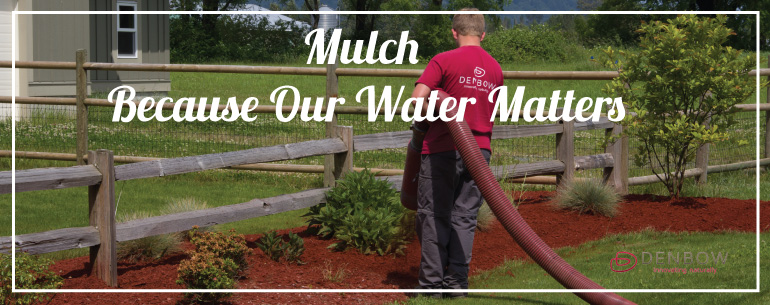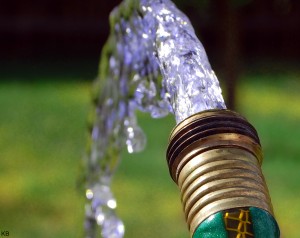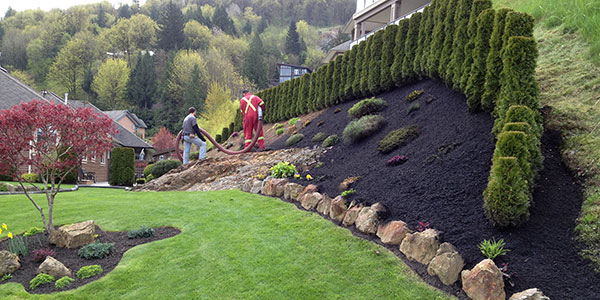Discovering new ways to reduce water consumption in summer is critical to being a part of the water usage solution. The city of Abbotsford states, “Adding mulch to your garden is likely the single most effective way to reduce a garden’s water needs and reduce weeds!”
This statement basically says, “Using mulch will be good for the garden and less work for you”. Isn’t that the goal for all of us with a green thumb?
USE MULCH BECAUSE OUR WATER MATTERS
- Laying down mulch on top of soil may be the best solution to creating a weed free garden bed. A good coating of mulch will inhibit the germination and growth of weeds in your soil.
-
Adding and maintaining mulch to your garden will greatly reduce the amount of water lost to evaporation.
- Mulch also helps regulate the temperature of the soil so plants or trees don’t get stressed from low to high summer temperature fluctuations.
- Mulch can increase biodiversity in your yard by giving a variety of insects and other tiny creatures homes and shelter.
- Mulch breaks down very slowly, improving the soil’s composition and preventing it from becoming too compact.
- Mulch can also protect your plants from any damage that a stray weed whacker or lawnmower can do.
- Not only are weeds ugly, they can steal both nutrients and water from the plants in your garden. Laying mulch will help the soil hold in it’s moisture and nutrients so the plants can absorb what they need and not dry out too quickly while you’re away work or during extremely hot days.
To receive the most benefits from mulch, add a layer of at least 5-7.5 cm (2-3 inches) and maintain it as long as you have plants in your garden. Trees and shrubs will benefit all year round, just as much as a vegetable garden during its season. Rake the mulch seasonally to freshen up the colour.






